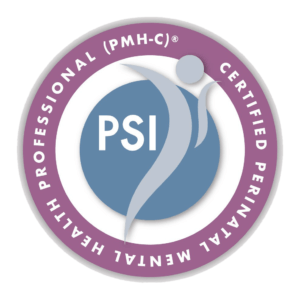
Anxiety is one of the most common mental health issues globally, affecting over 284 million people of all ages. It’s natural to feel anxious from time to time – it’s a survival mechanism designed to keep us out of harm’s way. But how do you distinguish between normal feelings of anxiety and an anxiety disorder?
What about when those feelings of nervousness, fear, or apprehension don’t subside and start interfering with our daily lives? And most importantly, when should you reach out for professional help to manage your symptoms?
Let’s learn about the signs and symptoms of anxiety disorders and the best time to consider professional treatment.
Understanding Anxiety
Anxiety is a natural response to stress. It’s the body’s way of alerting us to potential danger, and fear signals our body to fight or flee. While fear is the response to a known or definite threat, anxiety is typically associated with the anticipation of a potential problem or injustice.
In most normal situations, anxiety can be helpful. It can help us steer clear of danger and prepare us to take action. However, when anxiety is persistent and occurs seemingly for no reason, it can cause significant distress and disrupt normal life functioning.
Normal Anxiety vs. An Anxiety Disorder
It’s a part of being human to feel anxious before taking a test, during a life crisis, or when making an important decision. These feelings are generally short-lived and don’t disrupt day-to-day life.
In contrast, an anxiety disorder involves excessive and prolonged feelings of worry and fear about everyday situations. This ongoing anxiety can interfere with work, school, and relationships.
Recognizing Anxiety Disorders
There are several types of anxiety disorders, each with its own distinctive symptoms:
- Generalized Anxiety Disorder (GAD): Excessive, unrealistic stress or worry that lasts six months or more.
- Panic Disorder: Sudden, repeated attacks of intense fear that trigger physical symptoms for no reason.
- Social Anxiety Disorder: A fear of being judged, negatively evaluated, or rejected in social or performance situations.
The key distinction is the severity and longevity of the symptoms. If you find that your anxiety is uncontrollable, excessive, and negatively impacts your life, it’s important to consider that an anxiety disorder might be at play.
Signs You Should Seek Help
Recognizing the signs that it might be time to seek help from a mental health clinic is the first step toward managing your anxiety disorder. Here are some signs that you might need to consult with a healthcare provider:
- Persistent Worry: If you find yourself often worrying about worst-case scenarios, this could be a sign of an anxiety disorder. This type of worry is not just occasional but persistent, sticking around even without a stressor.
- Restlessness: Feeling irritable or restless all the time is another sign. This restlessness can often manifest as an inability to sit still or concentrate.
- Sleep Issues: If you’re unable to turn off your thoughts, resulting in sleep issues, this could be an indicator that you need to seek help.
- Fatigue: Feeling fatigued or tense in the body for prolonged periods can be a symptom of an anxiety disorder.
- Avoiding Situations: If your anxiety has reached a point where you cancel plans or avoid certain situations due to fear or worry, it’s time to seek help.
- Physical Symptoms: Anxiety can also cause physical symptoms like a racing heart, rapid breathing, sweating, trembling, or gastrointestinal problems.
You should consider seeking help if you’ve been experiencing these symptoms most of the time for two weeks or more.
Seeking Help at a Mental Health Clinic
When you decide to seek help, a mental health clinic is a good place to start. A healthcare provider at the mental health clinic can diagnose your condition based on your symptoms and suggest an appropriate treatment plan. This could include cognitive-behavioral therapy (CBT), medication, or both.
Therapy
Cognitive-behavioral therapy (CBT) is particularly effective in treating anxiety disorders. In CBT, you’ll work with a therapist to identify and challenge negative thought patterns that contribute to your anxiety.
Medication
For some, medication can provide significant relief from the symptoms of anxiety. Your healthcare provider at the mental health clinic will work with you to find the right medication and dosage that best suits your needs.
Lifestyle Changes
In addition to therapy and medication, making lifestyle changes can also have a profound impact on your anxiety. Regular exercise, a healthy diet, and adequate sleep can all contribute to a decrease in anxiety symptoms.
Mental Health Clinic Near Me in Phoenix, AZ
If you or your loved one is showing the aforementioned symptoms of anxiety disorder and are looking for a mental health clinic, visit us here at My Buoyant Health.
At our mental health clinic, we have a team of compassionate healthcare providers, led by Russell Horning, dedicated to providing you with evidence-based care for a wide range of mental health conditions, including anxiety disorder.
To take the first step towards managing your anxiety and improving your mental well-being, call us today at (602) 510-6582 or request an appointment directly. We look forward to serving you!




